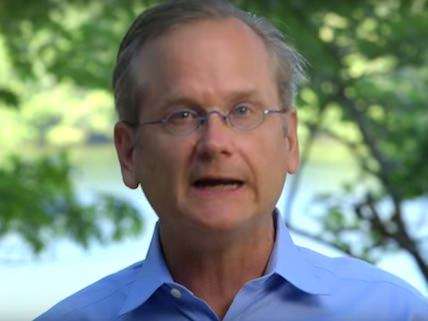Lawrence Lessig Enters the Presidential Race
The Harvard law prof said he'd enter the race if he could raise $1 million by Labor Day. This morning he hit his goal.

Lawrence Lessig has officially entered the presidential race. The Harvard law professor announced on August 11 that he would seek the Democratic nomination if he could raise $1 million by Labor Day, and this morning he reached his goal. If elected to the White House, Lessig pledges to pursue one piece of legislation—a set of electoral reforms he calls the Citizen Equality Act—and then resign in favor of his vice president, whoever that might turn out to be. In that way, he says, he can make the election a referendum on campaign reform without letting other issues get in the way.
His reform plan has several elements, but the centerpiece is a voucher-based system of public funding for elections, where citizens can direct a portion of their own taxes to the candidates of their choice. While this isn't objectionable in itself—it's certainly preferable to the current Presidential Election Campaign Fund, since it lets people choose where the dollars they donate go—I'm dubious that it'll have the sweeping effects that Lessig expects. The place where it has the most chance of having an impact is when someone would rather keep his money than send it to a candidate but would rather send it to a candidate than send it to the IRS. I'm sure that could affect some elections along the margins, but I don't see it turning the political world upside down.
I'm even more skeptical about Lessig's gimmick of pledging to pursue one bill and then resign. He thinks this would make the election a referendum on campaign reform, but I suspect it's just as likely to make it a referendum on his running mate.
But I gave Lessig space to make his case when I interviewed him after his initial announcement, and if you'd like to see where he's coming from you should check out that Q&A. And if you want to see how he feels about an entirely different set of issues—intellectual property and Internet regulation—you should read the interview I did with him back in 2002. If nothing else, I hope he manages to get onstage at the Democratic debates. He's certainly preferable to Clinton, and while I have a hard time imagining him winning the nomination, he's bound to make the race more interesting.


Show Comments (73)